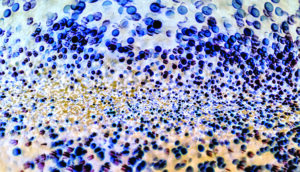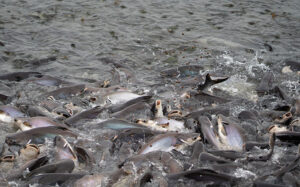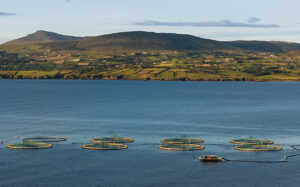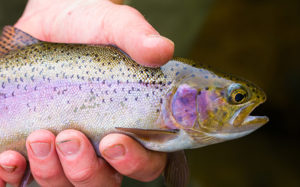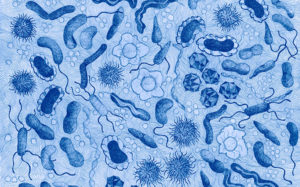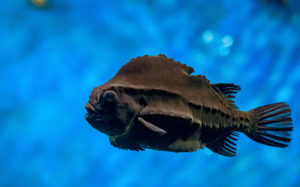The value of veterinarians in ensuring sustainability for Africa’s fast-growing aquaculture industry
Sub-Saharan Africa is enjoying an aquaculture boom — with fish health and welfare services moving in turn to meet the sector’s needs and ensure sustainable growth. In an interview, veterinarian Brandon Spolander, BVSc, MRCVS, SAVC, MSc, owner of Aquavet Africa, talks about engaging with the growing industry and addressing important gaps.
Health & Welfare
Using proteomics to understand infectious disease response in aquaculture
By Robert Stewart, PhD candidate at the Roslin Institute
Stomach-resistant oral vaccines could offer fish farmers easier vaccine administration
Oral vaccines hold a great deal of promise for fish farmers. Easier and quicker to administer than injected vaccines, they are also potentially suitable for fish that are too small for injection vaccination, including larval stages.
Race to control bacterial disease which threatens Irish salmon production
The bacterium Piscirickettsia salmonis, which causes the disease salmonid rickettsial septicemia (SRS) in Atlantic salmon, is becoming an increasing concern on fish farms in Ireland.
The future of sea louse control on salmon farms: do genetic technologies hold the key?
Genetic technologies could give salmon farmers the crucial tools they need to prevent sea louse infestations, according to researchers.
Visual indicators fall short in assessing anesthetic effect on fish
Visual observation is inadequate to assess whether anesthetics have rendered fish unconscious, leading to potential welfare risks, according to research in Sweden.
Bacterial risks in recirculating systems can be managed, study suggests
There is a risk that antibiotic resistant bacteria of the Aeromonas genus can be introduced into recirculating aquaculture systems (RAS), according to new research in France — while fish feed can provide bacteria with a route into these highly controlled production environments.
Research highlights ways to improve the lives of cleaner-fish species
The welfare of lumpfish used in biological control of sea lice significantly worsens after they are moved to cages at sea, while for wrasse, challenges in nurseries are causing problems before sea transfer.
Cutting antibiotic use in Chile’s growing salmon sector
An interview with Francisco Vallejos, MV, deputy health manager for Camanchaca SA.


